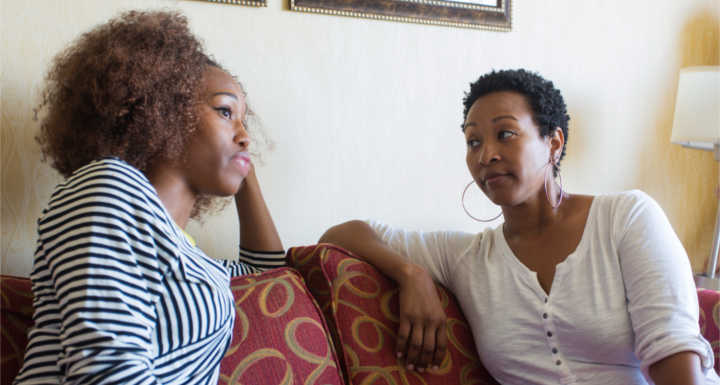Contact Us
Once upon a time there was a woman (okay, me) who was shocked.
I was a little disgusted even, when I discovered my friend made a decision with which I so strongly disagreed. I couldn’t believe it! Other people maybe, but my friend?! How could she?! What was she thinking?!
I pride myself in being able to see different perspectives, but in this case, it seemed so blatantly wrong! How should I handle this? Not say anything? Confront her? I knew by my strong feelings I cared too much about our relationship to just let the incident go. And yet conflict is not my go-to posture.
This is where awkward entered. I needed to make a decision, was I going to pretend this didn’t happen? That I didn’t care? Could I even pretend it away? Or was I going to deal with my feelings and my friend directly?
My emotions were strong when we were face to face. My words came tumbling out of my mouth before I could really think. And they had lots of energy behind them. I wasn’t harsh, and I tried my best not to be judgmental. It was rare for me to express an opinion about a decision of hers without being asked. I surprised myself. And based on the expression on her face, I surprised her too.
A few hours later I couldn’t shake the feeling that comes with unresolved conflict. That itching-to–get-out-of-my-skin-because-things-weren’t-right kind of feeling. But I actually wasn’t sure if there was any conflict. What I was certain of was I cared more about the long-term relationship than I cared about the awkward moment. I mentally replayed my words and my tone, a few times, how everything went down and I truly didn’t say or do anything I was sorry for. I didn’t feel like I needed to apologize, but I wanted to make sure she felt the same way.
Enter awkward part two. I called (admittedly when I knew she wouldn’t answer because she was at work) and left a message that went something like this:
“Hey, I was surprised earlier about how strongly I felt. I just wanted to make sure we still don’t need to talk through some things. I don’t feel like I need to, I’m ready to move on, but I want to make sure you feel the same way. Call me.”
An hour later when my phone rang my stomach dropped a little. Did I really want to have this conversation? I knew I did and I answered. It was fine. She said she wasn’t offended. I said I didn’t need to rehash everything; I’d made my opinion known. And we were able to move on.
But that’s just it! We were able to move on because we dealt with the awkward upfront. We didn’t stuff it where it could simmer. We didn’t pretend it away for more to be heaped on the next time. We started with a mutual clean slate.
This friend and I have established a relationship where we can be honest about our feelings without being accusatory. She checks in with me and I with her. Because we are upfront in the awkward, we can trust the “I’m fine” and “I’m good” are sincere when they are spoken.
The moral of this little story? In the end, the awkward can build trust if done out of love and care for the friendship.

Alexandra Kuykendall
As a mom to four girls, ages 3 to 12, Alexandra Kuykendall’s days are spent washing dishes, driving to and from different schools and trying to find a better solution to the laundry dilemma. She writes to capture the places where motherhood meets everyday life to remember the small, yet significant moments in the midst of the blur. She is the author of The Artist’s Daughter, A Memoir, a contributor to this year’s Be you, Bravely, An Experiment in Courage and acts as the Specialty Content Editor for MOPS International. A city girl at heart, she makes her home in the shadow of downtown Denver. You can read more of Alex’s everyday thoughts and connect with her at AlexandraKuykendall.com.
